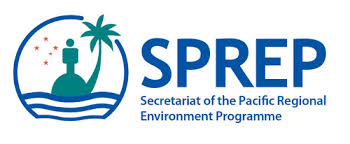Relevance

The Pacific island countries ranging from the smallest coral atoll to the highest volcanic islands share similar sustainable development challenges, including small populations, lack of resources, remoteness, susceptibility to natural disasters, excessive dependence on international trade and vulnerability to global developments. In addition, they suffer from lack of economies of scale, high transportation and communication costs, and costly public administration and infrastructure. Agriculture remains the backbone of the Pacific Island economies: it is the main source of livelihood and its sustainable management is critical to the islands development.
The Pacific ACP countries are parties to and strong supporters of numerous MEAs but they often lack the technical, financial, legal and human capacity to effectively deal with MEA obligations.
Effective compliance falls under two main categories:
-
Participation in negotiations (preparations of positions that reflect the country’s interests and preparations of negotiation strategies for eliciting desired outcomes during negotiations); and
-
Implementation of MEAs.
There are two main issues at play with Pacific MEA implementation:
-
The process of developing plans and strategies and monitoring and reporting; and
-
Support to overcome technical obstacles to implementation such as the lack of project management skills, inadequate technical and legal capacity, and lack of financial resources.
Understanding the relationship between science and policy in the context of climate change, for example, is critical if Pacific island country policy makers and negotiators are to adequately represent and negotiate national priorities. Building the technical and scientific capacities of Pacific island countries to enable and facilitate responsive strategies and policy stances is crucial. At the same time, setting up the regulatory capacity to reduce pesticides risks throughout their lifecycle while promoting a sustainable agriculture is of high importance for preserving people’s health and ecosystems functioning.
Experience in the Pacific shows that environmental and agricultural concerns are insufficiently mainstreamed into National Sustainable Development Strategies (NSDS) and national and regional sector policies, strategies and action plans. At the national level, specific action plans to address the main MEA issues are frequently lacking or are inappropriate. In addition, it is often difficult at the national level to ensure appropriate coordination between national and international efforts as well as to have a clear picture of what has been implemented and how different actions and programmes fit into global strategies.
